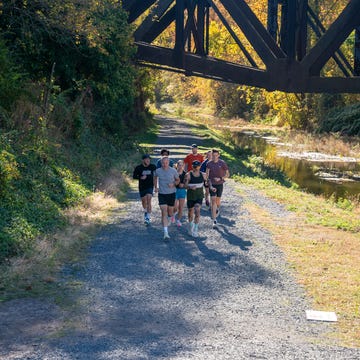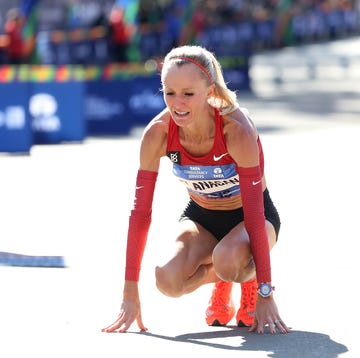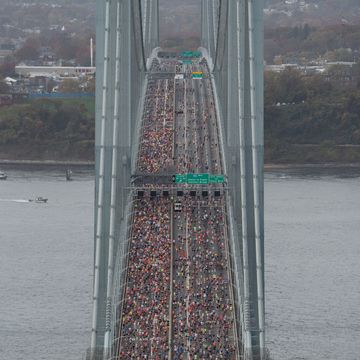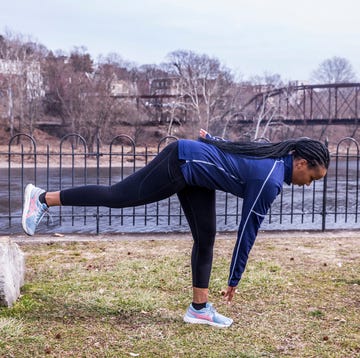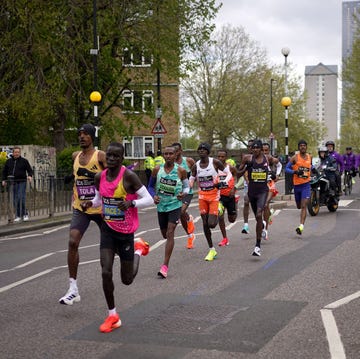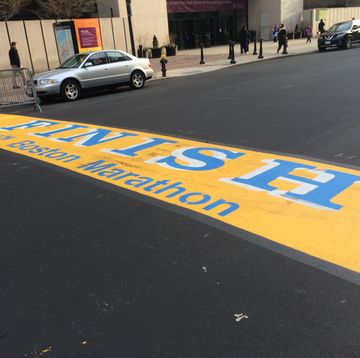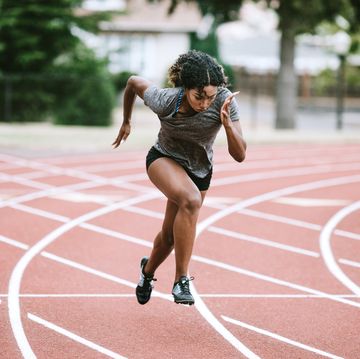For more than four decades runners have made the climb out of Squaw Valley, California, raced over mountains and through 100-degree canyons, and crossed the American River on a pilgrimage to Auburn. There, in the town nicknamed the Endurance Capital of the World, runners circle a high school track and celebrate a well-earned finish exactly 100.2 miles from where they started.
The Western States 100 Mile Endurance Run is the oldest 100-mile race in the world and one of the most competitive. This year’s race begins on Saturday morning.
Historic Women’s Field
For Stephanie Howe, defending champion, life is much different than a year ago. Since then she’s gotten married, continued working toward her PhD in nutrition and exercise physiology, and experienced a boom in her nutrition and coaching business. And, of course, she’s continued training at a high level in her hometown of Bend, Oregon.
“I’m just at a different spot in my life,” she said.
What hasn’t changed is her preparation for Western States. She hopes to match last year’s sensational run when she won what was her 100-mile debut with an 18:01. Her time ranks fourth on the race’s all-time chart, trailing only course record holder Ellie Greenwood and the legendary Ann Trason.
“I caught every sickness that went around Bend this spring, but am more or less back on track,” Howe said. “One hundred miles is still terrifying, and I’m going to be as best prepared as I can be, but I have the potential to blow up too.”
While Howe has hopes of winning again, the experience isn’t all about what place she finishes. Howe was introduced to the sport of ultrarunning at Western States and appreciates the connection there.
“It’s an iconic race. There are a lot more difficult races, but there’s something about Western that strips you down,” she said.
The group expected to challenge Howe for the win includes Magdalena Boulet (Oakland, California) and Michele Yates (Littleton, Colorado). Boulet is making her 100-mile debut and Yates is running her first Western.
Boulet, a 2008 Olympic marathoner who has raced twice at the 100K distance, admits “this is a new challenge for me, and it’s a big one.”
She’s treated the bump up in distance delicately.
“I have done less mileage preparing for a 100-mile race than I have preparing for a major marathon,” she said. “But, I have spent more time on my feet. The long runs take much longer these days when you are getting 5,000 feet of vertical.”
Boulet has a lifetime of running achievements, but still feels the excitement of racing. “I get butterflies just thinking about Western. When you care about something you get excited and nervous, and I wouldn't be doing this if I didn’t care,” she said. “I have my heart set on toeing the line at Western as prepared as I can be, and despite feeling good and fit, I am super nervous.”
Yates, known for her aggressive racing style from the gun, was the 2013 Ultrarunner of the Year. After a year off from competitive racing after pregnancy, she’s just now returning to form. “I can’t say I’m 100 percent, but about 95 percent,” she said. “I will come out fighting, and keep fighting.”
Yates earned her entry with a first-place finish at the Gorge Waterfalls 100K and said that the Western States course will suit her well. Yates spent five years living in Las Vegas and is accustomed to running in the heat—and loves down hills.
Nine of last year’s top-10 women also return to Squaw. This group includes Larisa Dannis (Mill Valley, California), Pam Smith (Salem, Oregon), Nikki Kimball (Bozeman, Montana), Kaci Lickteig (Omaha, Nebraska), Denise Bourassa (Bend, Oregon), Meghan Arbogast (Cool, California), Shaheen Sattar (Dallas, Texas), and Sally McRae (Huntington Beach, California).
Others expected to challenge for a top-10 finish include Aliza Lapierre (Williston, Vermont), Anita Ortiz (Eagle, Colorado), Caroline Boller (Temecula, California), Emma Roca (Spain), Joelle Vaught (Boise, Idaho), and Nicole Studer (Dallas, Texas).
Men’s Race an International Affair
Rob Krar (a Canadian who lives in Flagstaff, Arizona) also returns as defending champion and will face a varied field of established 100-mile runners, newcomers boldly stepping up in distance, and some international runners eager to take a shot at the title.
After winning last year’s Western States in the second-fastest time ever, Krar went on to also win the Leadville Trail 100 and the Run Rabbit Run 100 in a memorable summer. He found success at ski mountaineering this winter, and ran to a second-place finish at Moab Red Hot 55K, dropped from April’s Lake Sonoma 50, and then won the first-year Canyons 100K in May.
“Feeling great, things are going very well, very similar to last year,” Krar said.
Earlier this year Krar took a leave of absence from work as a pharmacist, where he manned the graveyard shift. The change has allowed him to focus on his training—but perhaps more importantly, on his recovery. “What I did last year was great, but it was tough. It was just a really unhealthy schedule,” Krar said, adding that he’s had to also be cautious to not over-train in the extra time he has on his hands now. “I’ve heard enough tales of runners running themselves into the ground once leaving work. I’ve bumped up the miles a little, a little bump in intensity, and I’ve been focusing on proper rest.”
Although he is the defending champion and will wear the prized M1 bib, he said he doesn’t feel the pressure. In fact, Krar talks casually about the race, a profound contrast to a year ago when he declined all pre-race interviews.
“It’s just another race; all of my races are generally ‘A’ races. I’ll run my own race for the first half or three-quarters, and then go from there,” he said.
Last year’s finish was just off Timothy Olson’s course record, but Krar says he won’t target a specific time. “Chasing records is a dangerous thing to do,” echoing a sentiment he’s previously voiced. “But I do feel good about where I’m at.”
Of last year’s top-10 men, nine will return. The other eight, listed in order of their 2014 finish, include Seth Swanson (Missoula, Montana), Dylan Bowman (Mill Valley, California), Ryan Sandes (South Africa), Ian Sharman (Bend, Oregon), Alex Varner (San Rafael, California), Brendan Davies (Australia), Brett Rivers (Mill Valley, California), and Jesse Haynes (Capistrano Beach, California).
New entrants expected to challenge for a top-10 or better finish include Chris Denucci (Menlo Park, California), Ford Smith (Austin, Texas), Justin Houck (Mercer Island, Washington), and Ryan Smith (Boulder, Colorado), while David Laney (Ashland, Oregon), Jared Hazen (Colorado Springs, Colorado), and Paul Terranova (Austin, Texas) will all try to better last year’s finishes that left each just outside of the top 10.
If the elite entrant list reads long, it’s because it is. Western consistently assembles a deep and diverse field. Houck, who won the 2014 White River 50 and the 2015 Gorge Waterfalls 100K, will make his 100-mile debut, but not much has changed in his training as he reaches for a greater distance. The back-to-back long runs are still 26-30 miles the first day and typically 3-4 hours the second. Those runs have grown more frequent as he approaches the longer distance.
“I probably have some ignorance in my youth,” Houck said. “I’ll get a taste of it and see what it’s all about.” With a strong resume—he’s won three of the four ultras he’s entered—Houck plans to “put myself out there, but race smart. I’ve visualized myself on the podium, top-10, but we’ll see where the cards fall.”
International runners are increasingly adding to the elite field, partly from the influence of the Ultra-Trail World Tour. That group includes Andrew Tuckey (Australia), Francois D’Haene (France), Gediminas Grinius (Lithuania), Julien Chorier (France), Sondre Amdahl (Norway), and Thomas Lorblanchet (France).


